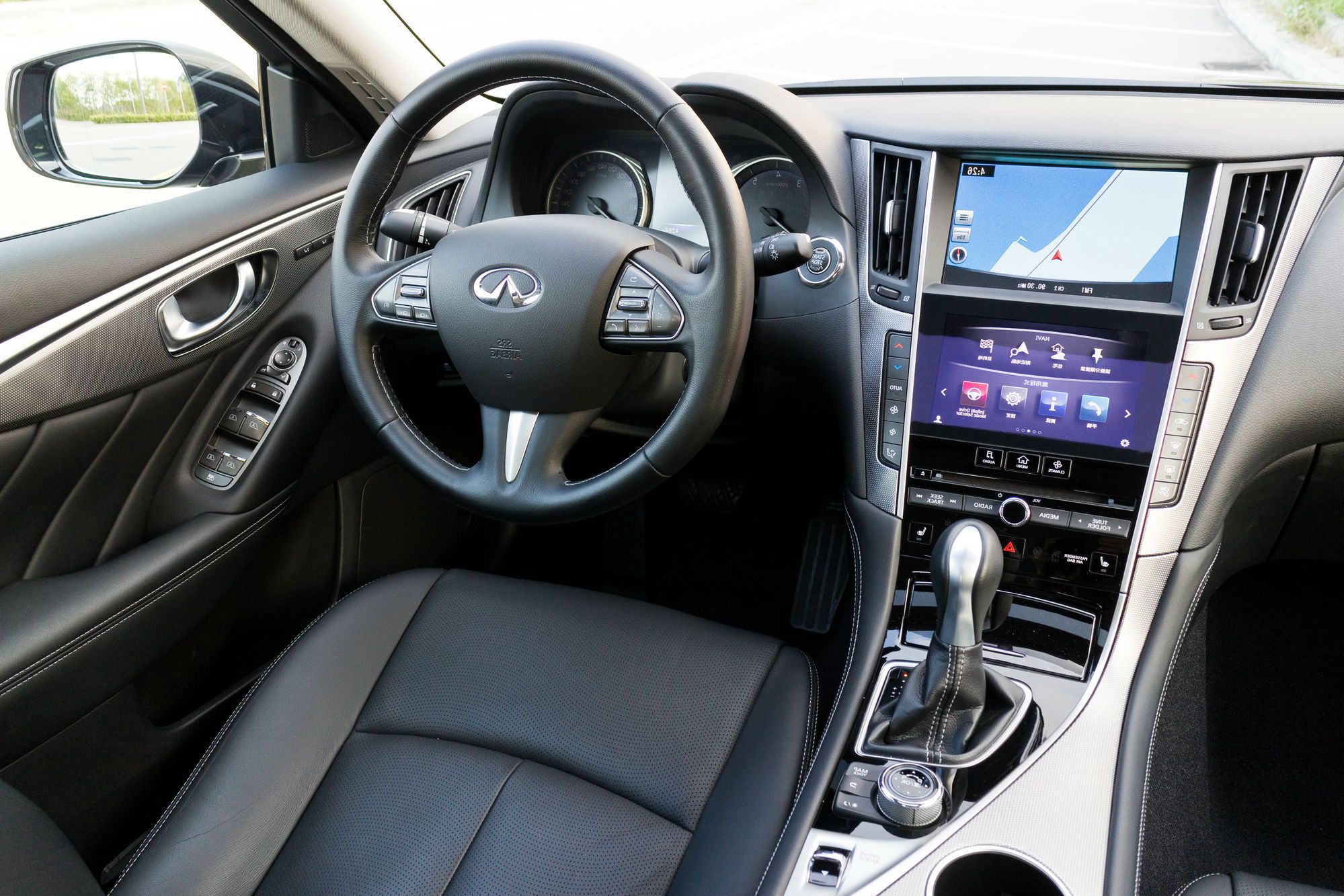Top Class Actions’s website and social media posts use affiliate links. If you make a purchase using such links, we may receive a commission, but it will not result in any additional charges to you. Please review our Affiliate Link Disclosure for more information.

U.S. District Judge Andre Birotte Jr. heard oral arguments from both parties Monday and noted he was inclined to certify the class action lawsuit but would be open to Nissan’s arguments that the InTouch infotainment feature was not the driving factor in customers’ purchasing decision.
In March 2015, plaintiffs Joshua Rafofsky and Joshua Iron Wing brought the proposed false advertising class action lawsuit against Nissan North America Inc. claiming they were misled by the automaker’s “carefully crafted advertising campaign” that advertised 2014 Infiniti Q50 models would be equipped with a state-of-the-art “infotainment system” that included access to mobile phone apps, emails, and a calendar.
However, the plaintiffs say that despite the Infiniti vehicles being released to market in August 2013, many of the features promised with the InTouch infotainment system did not work until more than a year later and some music streaming features are still not functioning.
On Monday, Nissan told the court that it couldn’t be established on a class-wide basis that the Infiniti owners based their decision to purchase their vehicles on the alleged misleading ads since the InTouch feature was not heavily promoted, noting there were no television ads even marketing the feature.
“What they need here is they need to get to presumption of reliance. That based on the evidence, that there was exposure [to the ads]. Without it, you can’t get to reliance,” Nissan said. “And without that presumption, you can’t get class certification.”
Judge Birotte Jr. questioned if advertising the InTouch infotainment system just at dealerships would be sufficient.
But Nissan countered, arguing that since “every single salesperson” would present the InTouch infotainment system differently to potential car buyers, the plaintiffs fail to show common question of fact needed for class certification.
“Unless you can show something systemic, it would actually not be adequate,” Nissan argued.
Nissan further argued that there are too many individual issues at hand and that the majority of the potential Class Members cannot show injury since many never even registered to use the InTouch applications at issue.
“As it turned out this was not a popular feature,” Nissan’s asserted.
However, the plaintiffs challenged Nissan’s argument, telling the court that the automaker advertised the InTouch infotainment system as a “primary feature” of the 2014 Infiniti Q50 and the reason why owners failed to access the advertised apps and functions using InTouch were “because [they] didn’t work.”
In their motion for class certification, the plaintiffs contend that the InTouch infotainment system could not perform the multitude of tasks Nissan claimed it would.
“Nissan admits that at certain points in time some of its promotional materials related to the 2014 Q50 mentioned certain technological features, including the InTouch system and the apps … that were planned to become accessible later as well as the email and calendar functions that would later become available or accessible,” the company responded.
Additionally, the plaintiffs say that Nissan focused on the InTouch infotainment technology in order to distinguish itself from other luxury auto brands.
The proposed class action lawsuit asserts that Nissan violated that Magnuson-Moss Warranty Act, the California Consumers Legal Remedies Act and California’s unfair competition law, along with the Nevada Deceptive Trade Practices Act.
The plaintiffs are seeking to represent both a certified California Class and a Nevada Class.
Rafofsky and Iron Wing are represented by Timothy Blood, Thomas O’Reardon and Paula Brown of Blood Hurst & O’Reardon LLP, Ben Barnow and Erich Schork of Barnow & Associates PC, and Jeffrey Hurst of Monteleone & McCory LLP.
The Infiniti InTouch Infotainment System Class Action Lawsuit is Rafofsky v. Nissan North America Inc., Case No. 2:15-cv-01848, in the U.S. District Court for the Central District of California.
UPDATE: On April 19, 2017, Nissan North America reportedly agreed to settle a class action lawsuit alleging it used false advertising to promote the InTouch infotainment system included in certain Infiniti Q50 vehicles.
UPDATE 2: The Nissan Infiniti Q50 InTouch Class Action Settlement is now open. Click here to file a claim.
ATTORNEY ADVERTISING
Top Class Actions is a Proud Member of the American Bar Association
LEGAL INFORMATION IS NOT LEGAL ADVICE
Top Class Actions Legal Statement
©2008 – 2024 Top Class Actions® LLC
Various Trademarks held by their respective owners
This website is not intended for viewing or usage by European Union citizens.















2 thoughts onInfiniti InTouch Class Action Lawsuit Nears Certification
UPDATE 2: The Nissan Infiniti Q50 InTouch Class Action Settlement is now open. Click here to file a claim.
UPDATE: On April 19, 2017, Nissan North America reportedly agreed to settle a class action lawsuit alleging it used false advertising to promote the InTouch infotainment system included in certain Infiniti Q50 vehicles.